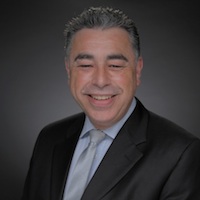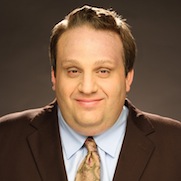Meet the Commentators: 2013 U.S. Junior Closed

Few names in U.S. Chess are more recognizable than Grandmaster Yasser Seirawan. A four-time U.S. Champion and former world Championship contender, Seirawan was the dominant force in American chess in the 1980s.
Born in Damascus, Syria, in 1960, Seirawan’s family immigrated to the United States when he was 7 and settled in Seattle. He picked up the game of chess when he was 12 years old and honed his skills playing against the top players in the area including Latvian-born master Viktors Pupols and six-time Washington State Champion James Harley McCormick.
When he was just 13, he became the Washington State Junior Champion, and in 1979 he won the World Junior Championship.
Seirawan went on to dominate the American chess scene, winning the U.S. Championship title in 1981, 1986 and 1989. He claimed the U.S. Championship title once again in 2000 and continued to play in major world-class events, including serving 10 times as a memebr of the U.S. team at the World Chess Olympiad, until he announced his retirement in 2003.
Seirawan was lured out of retirement in 2011 to once again play in the U.S. Championship, which was held in Saint Louis. He cited the exciting developments of the Saint Louis chess scene as a contributing factor for his renewed interest in competitive chess.
Seirawan followed the 2011 U.S. Championship with a stunning performance at the 2011 World Team Championship, where he earned an individual silver medal for his performance on board four throughout the event.
He is a highly respected teacher, commentator and author and has written several books including Chess Duels, the 2010 Chesscafe.com's book of the year. He currently serves as the featured grandmaster in the Chess Club and Scholastic Center of Saint Louis' Resident Grandmaster Rotation.
GM Ben Finegold
Grandmaster Ben Finegold learned the rules of chess at age 5 and received his first USCF rating at age 6. It wasn't long, around his mid-teens, until he realized he wanted to play chess professionally. GM Finegold's first major tournament win came in 1989 when he finished in a first-place tie at the U.S. Junior Closed Championship. Also in 1989, Finegold scored his biggest victory to date with a win against Boris Gelfand at the Euwe Memorial tournament in Amsterdam, Holland.
According to Finegold, this was the most famous player he had beaten at the time, and the fact that it was a Swiss tournament and he was unable to prepare for Gelfand specifically made the win that much more exciting. Finegold said he played an excellent tactical game to secure the victory. He obtained his first IM norm at the event, gained 40 FIDE points and eventually earned the title of International Master in 1990.
In 1991 Finegold won his first major, international, Swiss-paired tournament in Antwerp, Belgium. He was just 21 years old. From 1988 to 1992
Finegold lived in Brussels, Belgium. He returned to the U.S. in 1992 and, in 1993, was awarded the Samford Chess Fellowship.
The Samford Chess Fellowship is awarded each year to the most talented chess player in the United States under the age of 26. At that time, the fellowship gave Finegold a $1,200 per month stipend and also paid for all things chess related. During that time, he worked with Gregory Kaidanov, played in a number of strong tournaments, and began utilizing chess software on is computer to improve his game.
In 1994, Finegold finished in a six-way tie for first place at the U.S Open in Chicago, and then in 2002 he finished in a first-place tie with eight players at the World Open in Philadelphia where he secured his first GM norm. He won the Chicago Spring Invitational in 2005 to earn his second GM norm, and just this year, Finegold achieved his third GM norm at the 2009 Spice Cup Chess Festival in Lubbock, Texas.
Serious chess players are divided by the question of whether it’s better to study a narrow set of openings in great depth, or play a wide variety of systems, to keep opponents wondering. Finegold falls somewhere in between. He’s been playing 1.d4 his whole life but with Black he’s more flexible and can play numerous defenses against both 1.e4 and 1.d4. Ben isn't afraid of trading Queens early in the game, and wins a lot of half points from endgame technique.
Finegold served as the Resident GM at the Chess Club and Scholastic Center of Saint Louis from 2010-2012. He recently launched his own business venture, Finegold Chess Enterprises, with his son, NM Spencer Finegold.
